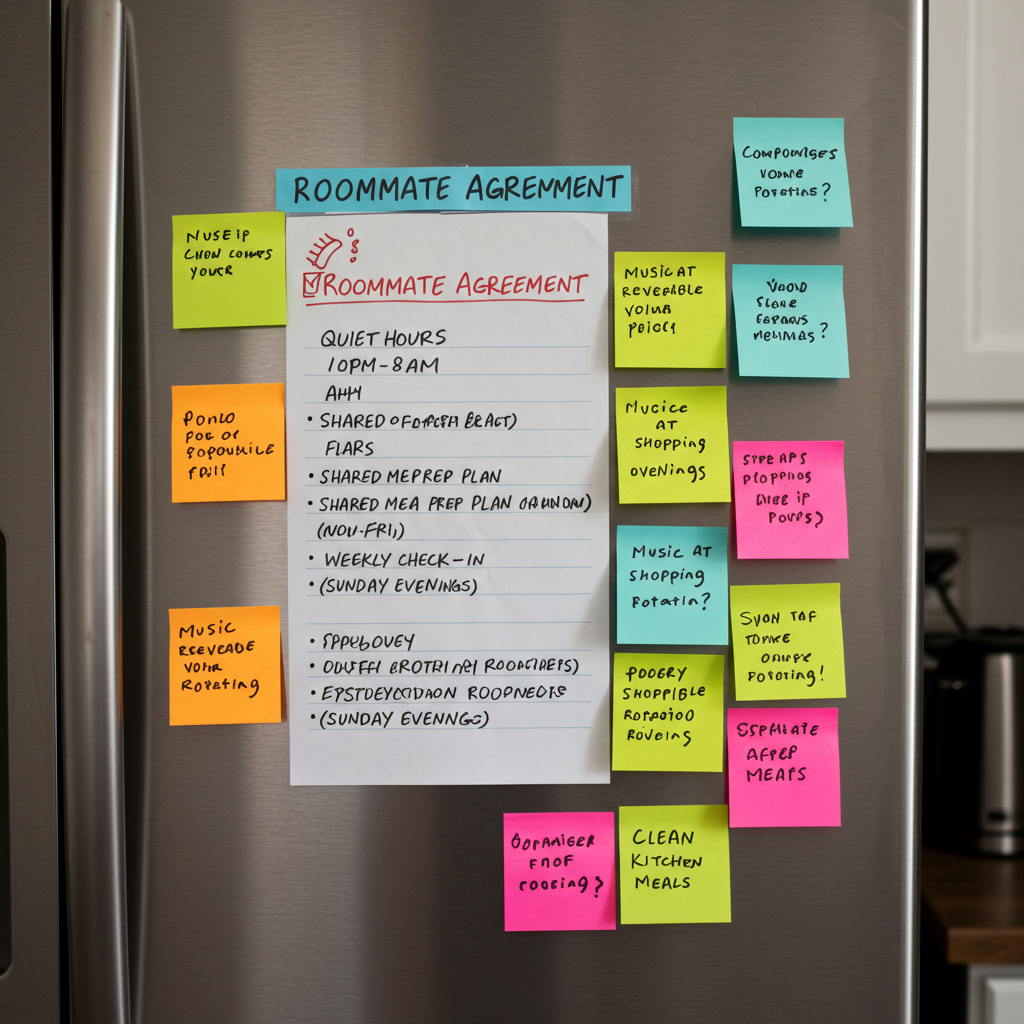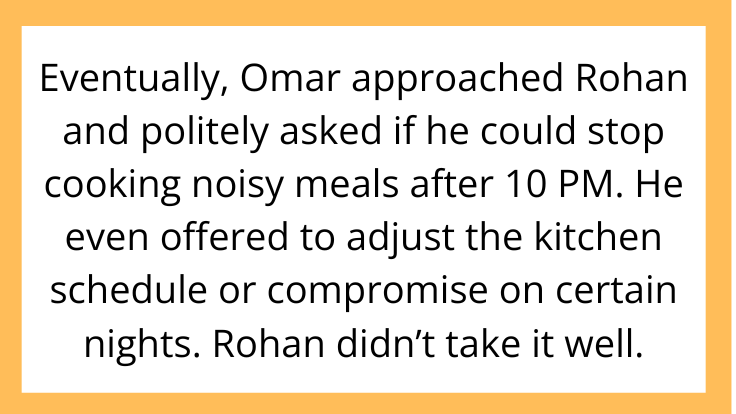AITAH for Asking My Roommate to Stop Cooking After 10 PM Because I Wake Up Early?
Living with a roommate can be both a blessing and a nightmare, especially when lifestyles clash. In today’s AITAH-inspired post, we explore what happens when personal habits turn into heated arguments—and whether setting limits makes you controlling or just considerate.
The Scenario: Clashing Schedules in a Shared Space

A Reddit user—let’s call him Omar—posted his dilemma in the r/AITAH community. He’s a 26-year-old software engineer who shares a two-bedroom apartment with a 25-year-old roommate, Rohan. Everything was smooth between them at first: rent was split evenly, chores were handled fairly, and there was mutual respect for privacy.
But over the past few months, a new issue has emerged: late-night cooking.
Rohan, a freelance designer, works odd hours and often doesn’t eat dinner until after 10 PM. That wouldn’t be a problem—except he makes elaborate meals that involve chopping, sizzling, and using a blender. The noise echoes through their small apartment and keeps Omar awake, especially on weekdays when he has to be up by 6 AM.
Eventually, Omar approached Rohan and politely asked if he could stop cooking noisy meals after 10 PM. He even offered to adjust the kitchen schedule or compromise on certain nights. Rohan didn’t take it well.
The Conflict: “I Pay Rent, I’ll Cook When I Want”

Rohan responded by saying that he also pays rent and has the right to use the kitchen whenever he wants. He felt Omar was being unreasonable and controlling. He argued that freelancing meant odd hours, and cooking late was the only time he could relax.
Omar tried to explain that his request wasn’t about control—it was about sleep and mental health. But Rohan refused to budge. The apartment quickly became tense, and Omar took to Reddit to ask: AITAH for asking my roommate to stop cooking after 10 PM?
The Roommate Debate: Rights vs. Consideration

Why Omar May Be Right
Omar isn’t saying Rohan can’t cook—he’s simply asking for some quiet during sleeping hours. This is a classic example of setting boundaries. Just because you share rent doesn’t mean you can ignore how your actions affect the other person.
Many commenters on Reddit pointed out that quiet hours are a common courtesy in shared spaces, and that working from home (or waking up early) requires a good night’s sleep.
Plus, Omar offered a compromise—he didn’t demand silence 24/7.
Why Rohan Has a Point
On the flip side, Rohan isn’t exactly wrong for wanting to cook when he’s hungry. He’s not throwing loud parties or blasting music. He’s preparing food in his own home, which he pays for.
From his view, being asked to change his natural rhythm might feel restrictive or even infantilizing.
The core issue? Neither roommate feels truly heard or respected.
Reddit Reacts: Who’s the Real Villain?

The AITAH community leaned in favor of Omar.
“Late-night cooking with blenders and frying pans isn’t reasonable in a small apartment,” one top comment said. “That’s just inconsiderate.”
Others shared similar experiences and suggested using appliances like air fryers or microwaves late at night, or even meal prepping earlier in the day to avoid conflicts.
Some users, however, took Rohan’s side:
“If he’s genuinely working odd hours and has no time to cook earlier, is it fair to ask him to starve or eat junk food?”
Still, the majority agreed: shared spaces require mutual respect, and compromise is key.
Roommate Etiquette: Setting Boundaries the Right Way

Clear Communication Is Everything
The issue isn’t really about cooking. It’s about noise, schedules, and mutual respect. Here’s how Omar and Rohan could move forward:
-
Have a house meeting: Lay out concerns and expectations. Avoid passive-aggression or “keeping score.”
-
Set quiet hours: Agree on times when noise should be minimized—especially in the kitchen or common areas.
-
Compromise: Maybe Rohan meal preps, or uses quieter cooking methods after 10 PM. Omar could wear earplugs or soundproof his room slightly.
Living Together Means Meeting in the Middle
No one gets their way 100% in a shared apartment. A functional roommate relationship depends on empathy, patience, and the ability to see things from the other person’s perspective.
Final Verdict: Not the Villain, But the Delivery Matters

Omar isn’t the villain for wanting sleep—he’s a person trying to live peacefully. But in roommate dynamics, tone and timing matter. A boundary set kindly is more likely to be respected.
Rohan may feel cornered, but ignoring Omar’s concern isn’t a solution—it’s a standoff. The healthiest path forward is mutual compromise, not a power struggle.



